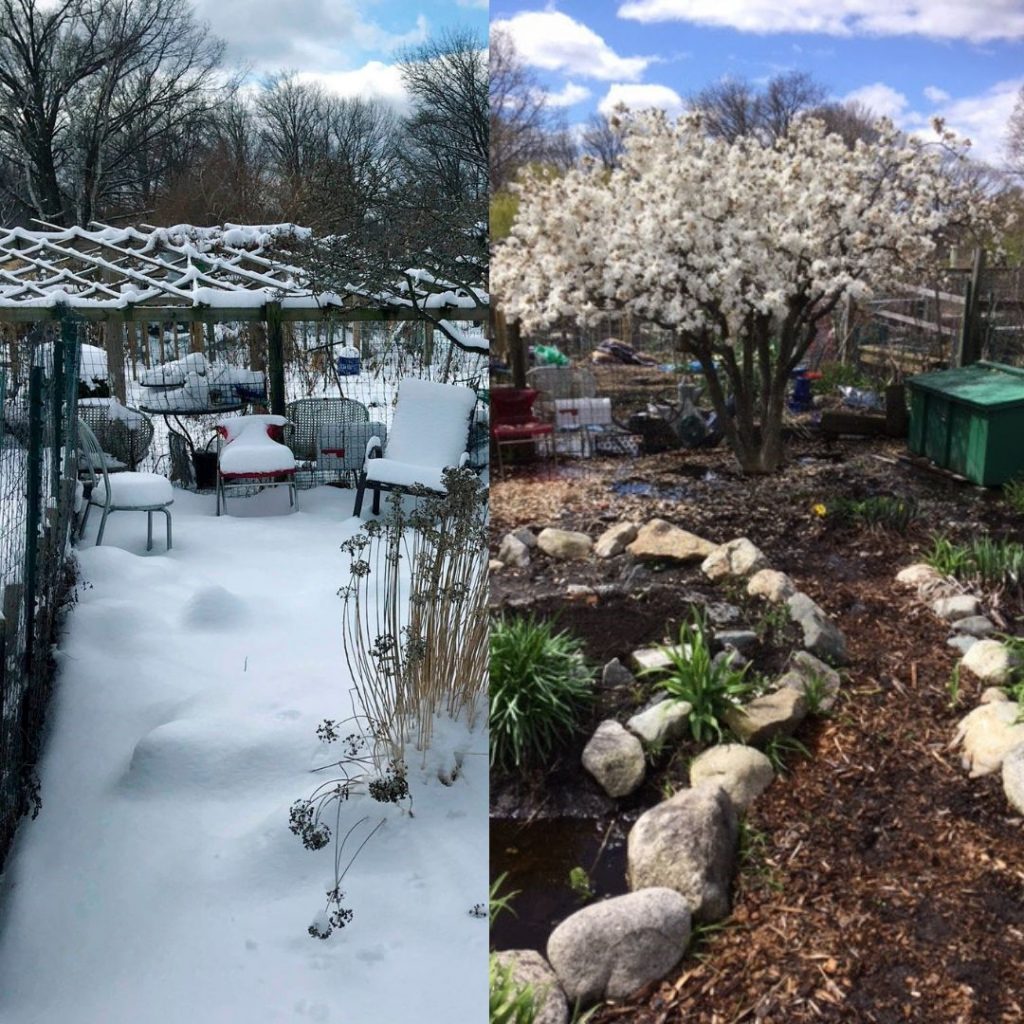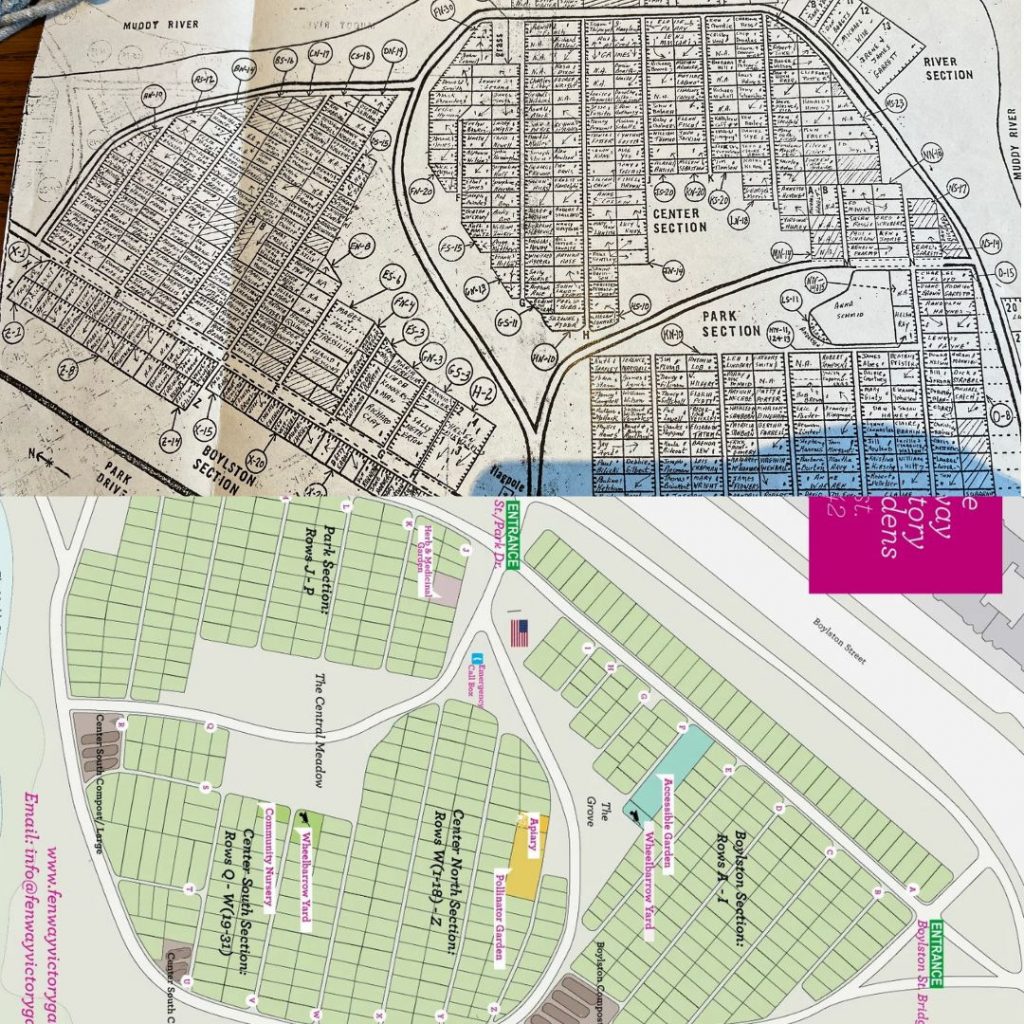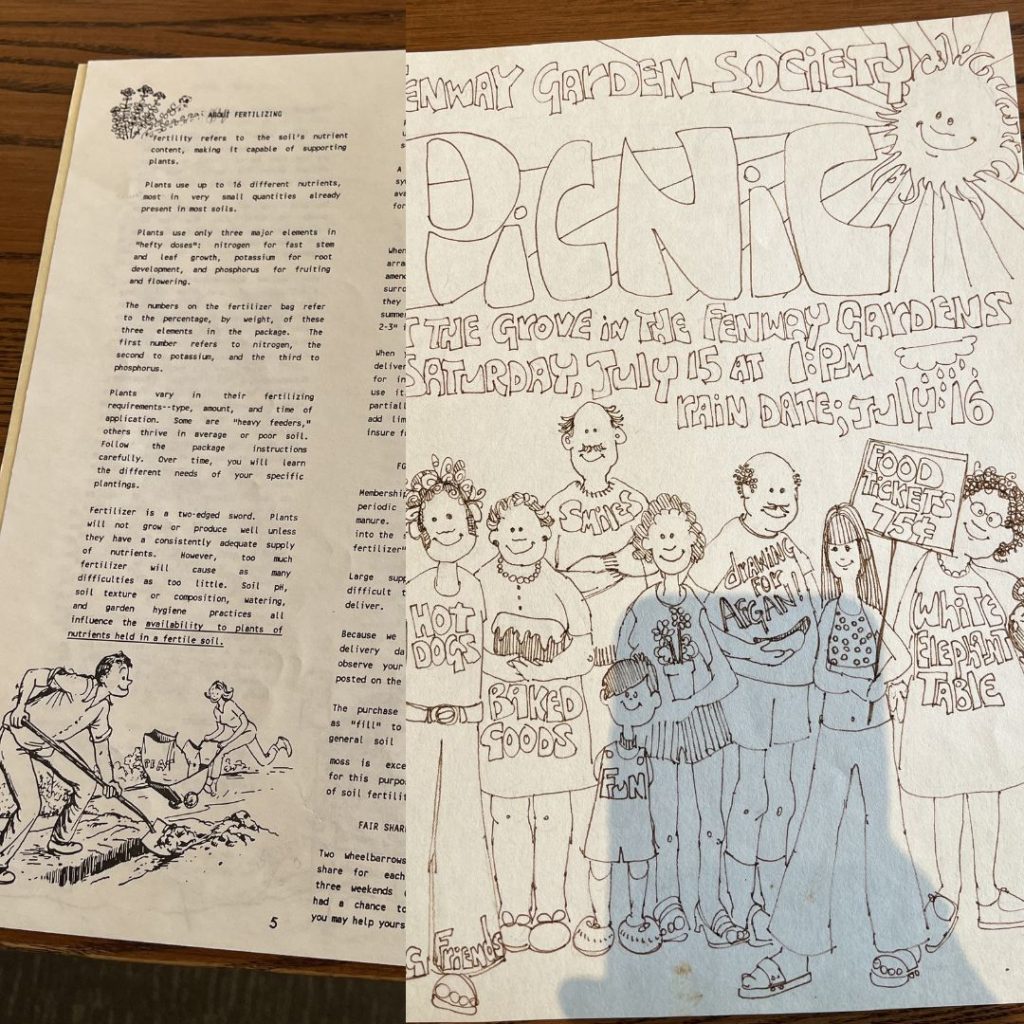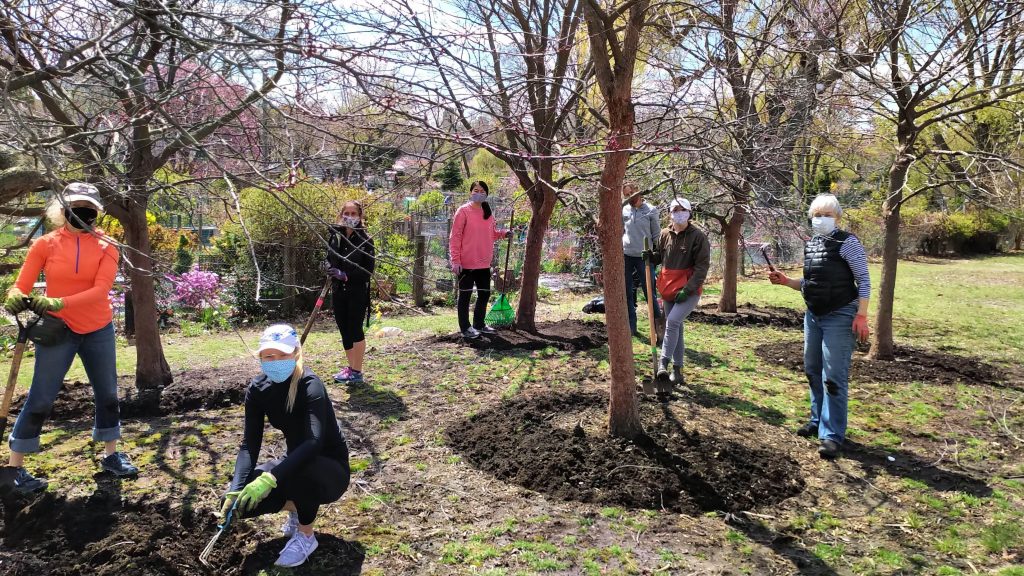By Meg Szydlik, Visitor Services Coordinator
February is the part of winter that always feels drearier than any other time of year, at least for me. With that in mind, I wanted to do research on something lighter to counter the snowy days and bitter cold. So I decided to pull out the Fenway Victory Gardens’ collection to explore. The history of the organization and the gardens, founded in 1942 and located in the beautiful Emerald Necklace, can be gleaned from both official statistics and tantalizing pieces of decades-old drama, which peak through the information about plots and plant growth. It tells a small piece of the story of the Fenway area–an area that’s been home to the MHS for more than a century.

The Fenway Gardens’ website explains their origins as a victory garden, which was a WWII movement to increase access to fresh food grown by citizens, with the goal of stretching ration coupons and increasing food sent overseas to troops. There were victory gardens all across America, but the Fenway Gardens of Boston are one of the few that are still around. The records held at the MHS span from 1944 to 2011 and include details of the gardens themselves as well as memberships, board communications, and gardening paraphernalia. The maps of the gardens demonstrate that in many ways, the more things change, the more they stay the same. While many new gardeners appear each year, I noticed over the decades people maintained their gardens year after year, contributing to green space in the city, many assisting other gardeners with their plots as well. The records are a charming peek into the kind of neighborly relationships that sustained the Fenway Gardens for more than 80 years.

The Fenway Victory Gardens were not always assured of success, however. Many documents describe the vandalism that took place in the area and requests for police protection of the Gardens. The safety of the site was frequently called into question by gardeners. Despite these concerns, there was an emphasis on inclusivity, with the 1981 anti-discrimination policy reading “this society shall not discriminate on the basis of race, ethnic origin, religion, or sexual preference” and the 1975 release of a booklet offering community resources for all types of groups, including the elderly, students, and “gay individuals.” The focus on accessibility for all also extended to disabled people, according to an undated report on improving the space for access, which included feedback from real disabled individuals. The Gardens were under constant threat however, and one of the letters by a long-term gardener recalls that in the late 70s, the nearby Red Sox wanted to buy out the space for a parking lot. The community rallied and saved the Gardens instead. If you’ve had trouble parking for a game, I suppose you can blame Fenway Gardens! I think it was worth it though. They are a wonderful piece of community history!

In 2020, the MHS received a plot of our very own after a couple of years of being on the waiting list! Led by the intrepid Laura Wulf, our Photographic & Digital Imaging Specialist, MHS staff members cleaned up the overgrown weeds and built a beautiful respite. The Fenway Victory Gardens are free and open to the public to stroll through. It is such a beautiful site that I highly recommend doing so!


